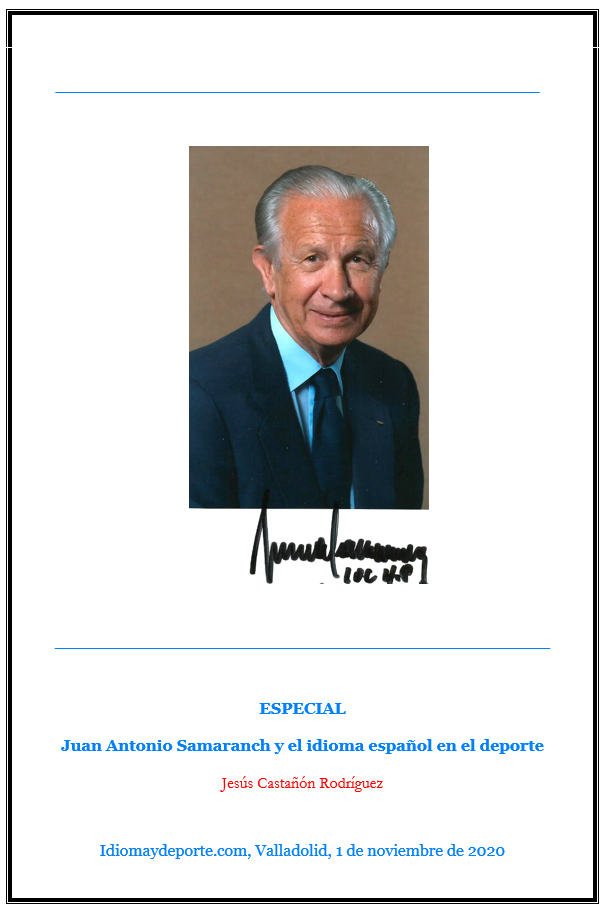Juan Antonio Samaranch y el idioma español en el deporte
Juan Antonio Samaranch y el idioma español en el deporte
Resumen
Con motivo del centenario del nacimiento de Juan Antonio Samaranch, Idiomaydeporte.com repasa el legado que, con un sentido moderno, aportó al idioma español entre 1955 y 2007.
Analiza cuatro aspectos lingüísticos: la colaboración en fuentes de consulta, el fomento de la reflexión racional de la educación superior sobre el deporte, la publicación de obras lingüísticas del Comité Olímpico Internacional durante su mandato y el reconocimiento del español como lengua oficial de dicho organismo.
Detalla dos aspectos literarios: el fomento de la vivencia artística del deporte, especialmente, desde la vertiente de la creación literaria y de las acotaciones periodísticas, y la reflexión de la educación superior.
En resumen, sus ideas destacaron la tarea lexicográfica y de organización del conocimiento del deporte para la consulta permanente, la importancia del buen uso de la terminología en la difusión social del deporte, la generación de estándares de lenguajes de documentación para clasificar las redes y saberes de este ámbito, la necesidad de la reflexión de la educación superior sobre el deporte moderno y, al concebir el deporte como un mundo simbólico, la gran capacidad de la literatura para crear imágenes que permanecen en el recuerdo colectivo a lo largo del tiempo.

Juan Antonio Samaranch and the Spanish language in sport
Abstract
On the occasion of the centenary of the birth of Juan Antonio Samaranch, Idiomaydeporte.com reviews the legacy that, with a modern sense, he contributed to the Spanish language between 1955 and 2007.
It analyzes four linguistic aspects: collaboration in consultation sources, the promotion of rational reflection in higher education on sport, the publication of linguistic works of the International Olympic Committee during its mandate and the recognition of Spanish as the official language of said institution.
It details two literary aspects: the promotion of the artistic experience of sport, especially from the perspective of literary creation and journalistic annotations, and the reflection of the higher education.
To sump up, his ideas highlighted the lexicographic and organizing task of sports knowledge for permanent consultation, the importance of the proper use of terminology in the social spreading of sport, the generation of documentation language standards to classify networks and knowledge in this area, the need for higher education reflection on modern sport and, by conceiving sport as a symbolic world, the great capacity of literature to create images that remain in the collective memory over time.

